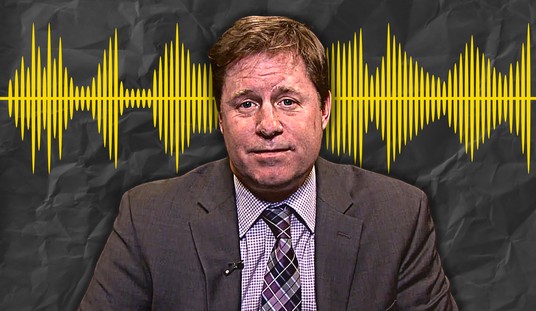It was not a fun go 'round on the Sunday morning talk circuit for Team Obama yesterday, underscored by David Axelrod's accidental de facto endorsement of Mitt Romney on Fox News. The White House likely nudged Hilary Rosen to decline a Meet the Press invite in order to help turn the page from their floundering "war on women" narrative to a Buffett Rule hypefest. Treasury Secretary Tim Geither -- last seen explaining how Obama has no solution to the gathering debt crisis -- informed NBC viewers that the president's economic policies have been "remarkably successful:"
For a primer on just how "remarkably successful" Obama's major economic initiative has been, consult my handy 'Stimulus' assessment, published on the third anniversary of its passage. (Spoiler: The 'Recovery Act' has failed on its own terms). But Geither argues that the most important metric for success has nothing to do with the president's promises and predictions as he implemented his agenda, but rather how today's listless recovery compares to other American economic comebacks throughout history. Ok, fine. Over to you, Stanford Business School professor Ed Lazear:
How many times have we heard that this was the worst recession since the Great Depression? That may be true—although the double-dip recession of the early 1980s was about comparable. Less publicized is that our current recovery pales in comparison with most other recoveries, including the one following the Great Depression. The Great Depression started with major economic contractions in 1930, '31, '32 and '33. In the three following years, the economy rebounded strongly with growth rates of 11%, 9% and 13%, respectively.
The current recovery began in the second half of 2009, but economic growth has been weak. Growth in 2010 was 3% and in 2011 it was 1.7%. Who knows what 2012 will bring, but the current growth rate looks to be about 2%, according to the consensus of economists recently polled by Blue Chip Economic Indicators. Sadly, we have never really recovered from the recession. The economy has not even returned to its long-term growth rate and is certainly not making up for lost ground.
Recommended
Read Lazear's entire piece, which -- problematically for Geither -- is entitled, "The Worst Recovery in US History. Ed Morrissey notes that Geither was forced to make a rather unhelpful concession during his other Sunday television appearance on ABC's This Week:
Treasury Secretary Timothy Geithner said he believed the economy is “gradually getting stronger,” but said “we can’t tell yet” whether growth has stalled as it has in previous spring months during the Obama administration. “We can’t tell yet,” Geithner said on “This Week” when asked if the same pattern from previous years was repeating, with strong growth in early months of the year, followed by a slow-down, as happened the last two years.
A humongous majority of Americans believe the country is still mired in a recession, and Mitt Romney has seized a decent-sized lead over Obama on the question of who is best suited to handle economic issues. Unless tangible economic indicators improve significantly over the next six months, no amount of Buffett Rule-style misdirection or wailing about the Republican "war on [fill-in-the-blank]" will save this president's bacon. Speaking of the "fairness fetish," are gadgets like the so-called Buffett Rule all that beneficial politically? On one hand, that particular gimmick -- which would cover 17 hours worth of federal borrowing annually -- polls reasonably well. On the other, Americans are far less interested in some abstract concept of fairness than they are in growth and opportunity. From a recent Third Way poll of independents:
Would you be more likely to vote, the survey asked, for a candidate who said we should help the middle class by stressing growth and opportunity, or by making sure the rich paid their fair share of taxes. The former won by 76 to 20 percent. Other answers indicate that respondents don’t mind the rich paying higher taxes, and even generally back the idea. It’s just not very interesting to them. They’re far more interested in growth than fairness.
This closely mirrors the numbers we highlighted from Gallup a few months back. Fairness simply isn't a prioritized economic value for most American voters, a fact that presents a genuine problem for Democrats. I'll leave you with two final nuggets from that Third Way poll, both of which were mined by Allahpundit for a post last week:


Here, independents split evenly between higher and lower taxes for "the rich" (which doesn't even take this data into account), and express about as much support for an across-the-board flat tax as they do for the current progressive system, which even the Ryan and Romney plans preserve in some form. Again, if things don't turn around noticeably -- and March's jobs numbers weren't encouraging -- the fairness brigade is in for a long general election cycle.
























Join the conversation as a VIP Member